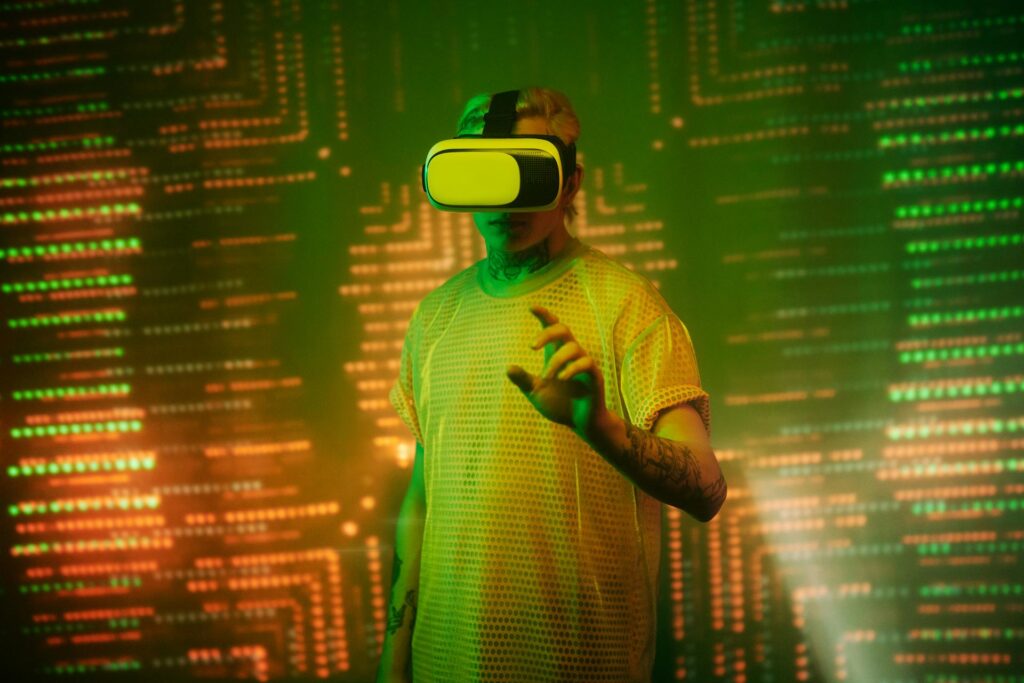Is AI Undermining Law The Role of VR and AI
Is AI Undermining The rapid evolution of technology, particularly in the fields of Artificial Intelligence (AI) and Virtual Reality (VR), is reshaping industries across the globe, including law. As these technologies mature, they are challenging traditional legal processes, potentially enhancing the efficiency of the legal system but also raising questions about the preservation of human judgment and fairness.

The Rise of Virtual Reality in Legal Applications
Virtual Reality has been around for years, but only now is it beginning to make significant waves in consumer products. Recent breakthroughs in VR technology including more comfortable devices and immersive software, make it possible to apply VR in ways that were previously unimaginable. This transformation isn’t limited to entertainment and gaming; VR is poised to revolutionize fields like healthcare, education, fitness, and, most significantly, the legal industry.
How VR Could Transform Legal Proceedings
One of the most exciting possibilities VR brings to the legal field is its ability to enhance courtroom experiences. Imagine jurors virtually walking through a crime scene or witnesses being able to present testimony in a fully immersive environment. For example VR could allow prosecutors and defense attorneys to present evidence in a more engaging and understandable way. Instead of relying on flat photos or video footage VR can bring jurors into the environment of the case, whether it’s a car accident, crime scene, or accident reconstruction, giving them a deeper sense of the event’s impact.
Additionally, VR could streamline legal procedures by enabling virtual hearings. Judges, lawyers and clients could appear in virtual courtrooms saving time and money on travel and logistical challenges making the legal process more accessible to those who cannot attend in person.
The Impact of AI on Legal Decision Making
AI technology has already been integrated into various facets of the legal system,such as contract analysis, legal research, and even predictive analytics for case outcomes. The increasing use of AI in the legal sector brings forward critical ethical concerns. Can AI replace human judgment in decision-making processes, particularly in sensitive legal matters? The growing Role of VR and AI in law could lead to decisions being made based on algorithms, potentially undermining the importance of human understanding and empathy in the judicial process.
AI and Legal Research: Revolutionizing the Industry
AI-driven tools have already begun transforming legal research. Technologies like natural language processing (NLP) and machine learning can analyze vast amounts of legal documents in a fraction of the time it would take a human. AI can provide lawyers with relevant case law, precedents, and even predict case outcomes based on historical data. This speeds up case preparation and allows lawyers to spend more time focusing on strategy rather than sifting through mountains of paperwork.
Challenges and Concerns in Integrating VR and AI in Law
While the potential benefits of AI and VR in law are immense, there are significant concerns. One of the biggest challenges is the risk of diminishing human involvement in legal processes. For example, could AI-driven decisions lead to biases, or could VR evidence lead to manipulation of emotional responses in a courtroom? Moreover, there are ethical questions surrounding data privacy and the potential for AI to misinterpret data or be used maliciously.
Ethics and Human Judgment in the Age of Technology
As AI and VR become more prevalent in the legal world, it’s crucial to strike a balance between innovation and human judgment. Technology should assist and augment the capabilities of legal professionals, not replace them. In criminal justice, for instance, judges and jurors should still rely on their human instincts, empathy, and reasoning when making decisions. VR and AI should enhance the fairness and accessibility of the legal system, not undermine its core principles.
VR’s Role in Market Research and Consumer Insights
Aside from its potential in the legal field, VR is also making waves in market research and consumer insights. Companies could hold virtual focus groups, conduct ad tests, or even observe consumer shopping behavior—all without the need for physical presence. This has enormous implications for businesses that rely on consumer feedback to shape their products and services.
Conclusion: The Future of Law in the Age of AI and VR
The integration of VR and AI into the legal field is inevitable, but its future remains uncertain. As the legal system evolves with new technologies, it’s crucial to carefully consider their potential to both improve and disrupt existing practices. VR and AI can undoubtedly enhance legal proceedings, from more engaging trials to better research capabilities. However, it’s essential to remain vigilant about the ethical implications and ensure that these technologies complement, rather than replace, human judgment and fairness in the legal system.
As technology continues to advance, it will be exciting to see how VR and AI influence the future of law, offering new opportunities for efficiency and accessibility while also posing new challenges. The legal industry must adapt, embracing these innovations while ensuring they serve the principles of justice and equity.The Role of VR and AI




